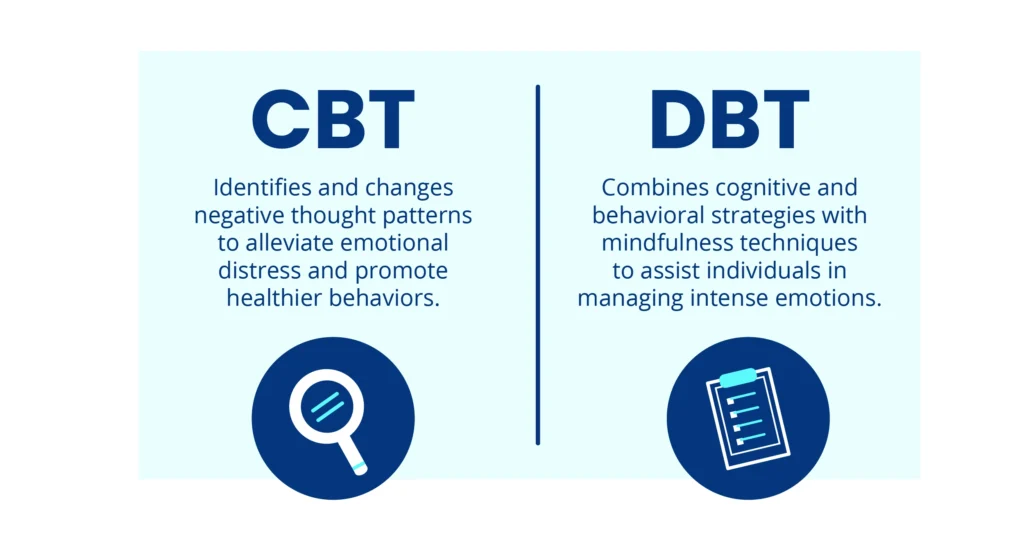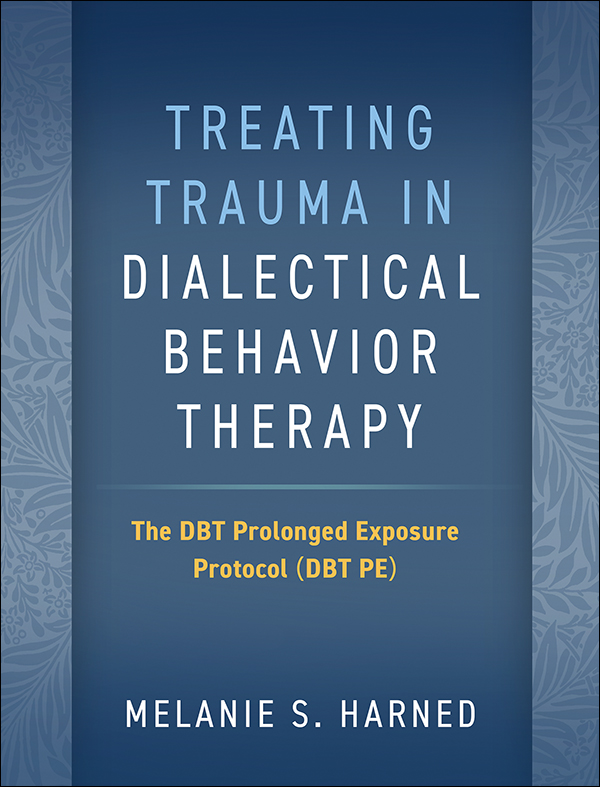DBT is not recommended for people with intellectual disabilities. DBT is also not targeted to treat panic disorder/panic disorder with agoraphobia, post-traumatic stress disorder, or psychotic disorders. Depending on the symptoms, an individual may benefit from learning DBT in combination with other therapy modalities.DBT is not recommended for individuals with intellectual disabilities or uncontrolled schizophrenia. A therapist who is trained in DBT can help you determine if DBT is an appropriate treatment for you.And while DBT has shown efficacy for many people struggling, there is a specific group that seems to just not benefit from this form of treatment: people who suffer from maladaptive overcontrol.
What are the limitations of DBT : – DBT involves homework that may not be well suited for everyone. – DBT is structured and has strict boundaries that must be set and followed. – There is no formal trauma processing in DBT, which may be a necessary component of treatment for some clients to recover from a traumatic experience(s) entirely.
What is the failure rate for DBT
Dialectical Behavioral Therapy [6] is a specialized treatment for BPD and has been shown to be effective in a wide range of studies. It has also proven to be more effective than active control conditions [7]. However, even for DBT, a mean dropout rate of around 28% is found in meta-analyses [7, 8].
Who is a good candidate for DBT : Am I a good candidate for DBT DBT has been proven effective for treating a variety of mental health conditions such as post-traumatic stress disorder, borderline personality disorder, depression, substance use disorder, and anxiety. However, DBT is not limited to helping only people with these conditions.
One of the main concerns voiced by critics is the risk of over-reliance on therapy. As DBT places a strong emphasis on the client-therapist relationship, some individuals may become overly dependent on their therapist for decision-making and problem-solving, hindering their ability to take ownership of their own lives. DBT lends itself very well to treating traumatic stress-related disorders, including PTSD and complex trauma.
What are the disadvantages of DBT tool
While dbt is a powerful tool, it's important to understand its limitations. dbt does not handle extract and load (ELT) processes and is not a substitute for data integration tools. It is also SQL-centric, which means that transformations are limited to what can be expressed in SQL and Jinja.The Role of DBT Skills in Managing Complex PTSD Symptoms
These skills can be particularly beneficial for individuals with C-PTSD, as they address many core symptoms and challenges associated with the condition.Is DBT Right for You If your emotions interfere with your relationships, work, school, or goals, it may be a sign that DBT could be right for you. If your emotions feel out of control, overwhelming, or debilitating, DBT may also be helpful. DBT for children on the Autism Spectrum
Autism is a complex range of neurodevelopmental conditions that need proper care. While there are a variety of therapeutic approaches, dialectical behavioral therapy (DBT) is particularly useful for addressing autism.
Is DBT bad for OCD : While OCD can be a challenging condition to live with, research has shown that Dialectical Behavior Therapy (DBT) can be a helpful treatment approach for individuals with OCD.
Why is DBT controversial : One of the main concerns voiced by critics is the risk of over-reliance on therapy. As DBT places a strong emphasis on the client-therapist relationship, some individuals may become overly dependent on their therapist for decision-making and problem-solving, hindering their ability to take ownership of their own lives.
Is DBT appropriate for ADHD
Because many conditions are marked by an inability to control emotions — attention deficit disorder (ADHD or ADD), mood and anxiety disorders, substance use disorders — DBT has been found to be an effective treatment for all of them. It has become a go-to treatment for ADHD. Dialectical behavior therapy (DBT) was developed to address reactivity, impulsivity, and mood dysregulation in individuals with mood and personality disorders. DBT may be therapeutically beneficial to autistic individuals struggling with these or similar emotional and sensory challenges.
Antwort Who is DBT not suitable for? Weitere Antworten – Who would not benefit from DBT
DBT is not recommended for people with intellectual disabilities. DBT is also not targeted to treat panic disorder/panic disorder with agoraphobia, post-traumatic stress disorder, or psychotic disorders. Depending on the symptoms, an individual may benefit from learning DBT in combination with other therapy modalities.DBT is not recommended for individuals with intellectual disabilities or uncontrolled schizophrenia. A therapist who is trained in DBT can help you determine if DBT is an appropriate treatment for you.And while DBT has shown efficacy for many people struggling, there is a specific group that seems to just not benefit from this form of treatment: people who suffer from maladaptive overcontrol.
What are the limitations of DBT : – DBT involves homework that may not be well suited for everyone. – DBT is structured and has strict boundaries that must be set and followed. – There is no formal trauma processing in DBT, which may be a necessary component of treatment for some clients to recover from a traumatic experience(s) entirely.
What is the failure rate for DBT
Dialectical Behavioral Therapy [6] is a specialized treatment for BPD and has been shown to be effective in a wide range of studies. It has also proven to be more effective than active control conditions [7]. However, even for DBT, a mean dropout rate of around 28% is found in meta-analyses [7, 8].
Who is a good candidate for DBT : Am I a good candidate for DBT DBT has been proven effective for treating a variety of mental health conditions such as post-traumatic stress disorder, borderline personality disorder, depression, substance use disorder, and anxiety. However, DBT is not limited to helping only people with these conditions.
One of the main concerns voiced by critics is the risk of over-reliance on therapy. As DBT places a strong emphasis on the client-therapist relationship, some individuals may become overly dependent on their therapist for decision-making and problem-solving, hindering their ability to take ownership of their own lives.

DBT lends itself very well to treating traumatic stress-related disorders, including PTSD and complex trauma.
What are the disadvantages of DBT tool
While dbt is a powerful tool, it's important to understand its limitations. dbt does not handle extract and load (ELT) processes and is not a substitute for data integration tools. It is also SQL-centric, which means that transformations are limited to what can be expressed in SQL and Jinja.The Role of DBT Skills in Managing Complex PTSD Symptoms
These skills can be particularly beneficial for individuals with C-PTSD, as they address many core symptoms and challenges associated with the condition.Is DBT Right for You If your emotions interfere with your relationships, work, school, or goals, it may be a sign that DBT could be right for you. If your emotions feel out of control, overwhelming, or debilitating, DBT may also be helpful.

DBT for children on the Autism Spectrum
Autism is a complex range of neurodevelopmental conditions that need proper care. While there are a variety of therapeutic approaches, dialectical behavioral therapy (DBT) is particularly useful for addressing autism.
Is DBT bad for OCD : While OCD can be a challenging condition to live with, research has shown that Dialectical Behavior Therapy (DBT) can be a helpful treatment approach for individuals with OCD.
Why is DBT controversial : One of the main concerns voiced by critics is the risk of over-reliance on therapy. As DBT places a strong emphasis on the client-therapist relationship, some individuals may become overly dependent on their therapist for decision-making and problem-solving, hindering their ability to take ownership of their own lives.
Is DBT appropriate for ADHD
Because many conditions are marked by an inability to control emotions — attention deficit disorder (ADHD or ADD), mood and anxiety disorders, substance use disorders — DBT has been found to be an effective treatment for all of them. It has become a go-to treatment for ADHD.

Dialectical behavior therapy (DBT) was developed to address reactivity, impulsivity, and mood dysregulation in individuals with mood and personality disorders. DBT may be therapeutically beneficial to autistic individuals struggling with these or similar emotional and sensory challenges.